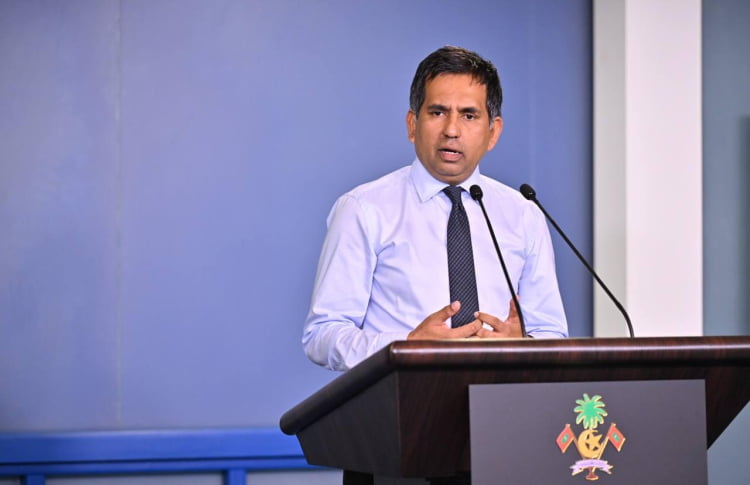
Introduction to the Revised Cross-Subsidy Regulation
The Maldives government has recently introduced significant amendments to its cross-subsidy regulation, which oversees the leasing of land, islands, and lagoons for tourism development. These changes are aimed at facilitating and accelerating investment in the tourism sector, a critical pillar of the Maldivian economy. The previous regulatory framework mandated that developers make a full payment of the subsidy amount before they could be granted any tourism land. This requirement often posed a financial burden, deterring potential investors and slowing the growth of tourism infrastructure.
In a significant update made in December, the regulation was modified to allow the leasing of tourism land upon an initial payment of USD 1 million. This adjustment was aimed at providing more flexible financial options for developers, thereby encouraging more investments in the tourism sector. The initial payment facilitated quicker access to land, islands, and lagoons, which in turn allowed for faster project initiation and development.
Building upon these changes, the latest revision to the cross-subsidy regulation introduces new financial obligations specifically tailored for projects exceeding USD 10 million. This revision underscores the government’s commitment to balancing investor flexibility with fiscal responsibility. The updated regulation now stipulates a structured payment schedule, ensuring that the financial commitments are met progressively as the project advances. This approach not only reduces the initial financial pressure on developers but also ensures that the government secures the necessary funds to support broader economic and social initiatives.
These amendments reflect a strategic endeavor by the Maldives government to attract substantial investments in the tourism sector while maintaining financial prudence. By easing the initial financial requirements and introducing a phased payment system for larger projects, the revised cross-subsidy regulation aims to foster a more conducive environment for sustainable tourism development in the Maldives.
Key Changes and Financial Requirements
The newly gazetted regulation for tourism land concessions in the Maldives introduces significant financial requirements for project undertakers. Under this updated framework, investors are now mandated to pay 50% of the total project expenditure upfront before the agreement can be signed. This upfront payment is a critical adjustment aimed at ensuring that only financially capable entities embark on such large-scale tourism ventures.
Furthermore, the regulation stipulates that the remaining 50% of the total expenditure must be cleared by the end of the calendar year. This phased financial commitment ensures that projects remain adequately funded throughout their lifecycle, thereby reducing the risk of project delays or abandonment due to financial shortfalls.
The implications of these changes are manifold. For investors, these stringent financial requirements necessitate a more robust financial planning and resource allocation strategy. It may also serve to filter out less serious or underfunded proposals, thereby elevating the standard and reliability of tourism projects in the Maldives.
From a broader investment landscape perspective, these regulations are expected to enhance the credibility and attractiveness of the Maldives as a viable destination for high-value tourism investments. By ensuring that only well-capitalized projects proceed, the Maldives can better maintain its reputation for high-quality tourism infrastructure and services, which is crucial for sustaining long-term growth in the sector.
Overall, while the new financial requirements may pose challenges for some investors, they are a strategic move to foster a more stable and prosperous tourism sector in the Maldives. The expectation is that these changes will lead to more sustainable and successful tourism projects, ultimately benefiting the broader economy and enhancing the Maldives’ standing as a premier global tourist destination.
Procedures and Approval Process
The leasing of islands, lands, and lagoons for tourism purposes in the Maldives under the new cross-subsidization regulation involves a structured and detailed procedural framework. This process ensures that the projects align with national tourism goals while maintaining transparency and accountability.
Initially, interested parties must submit detailed proposals that outline their plans for the development and operation of tourism facilities. These proposals are then reviewed by the relevant government authorities to ensure they meet the stipulated criteria and contribute significantly to the economic and social development of the Maldives.
A critical step in the approval process involves the President of the Maldives. The President plays a pivotal role by granting final approval for cross-subsidy projects. This high level of oversight ensures that only those projects with significant potential for positive impact on the national tourism sector are greenlit.
Once the President approves a project, the responsibility shifts to the economic council, which meticulously evaluates each proposal. The council’s role is to ensure that the selected projects are not only financially viable but also sustainable and beneficial to the local communities. Their evaluation includes a thorough review of the financial plans, environmental impact assessments, and social benefits outlined in the proposals.
The economic council’s rigorous selection process is designed to uphold a high standard of transparency and accountability. By carefully scrutinizing each proposal and conducting comprehensive assessments, the council ensures that the awarded projects are in the best interest of the Maldives’ tourism industry and its long-term goals.
This structured procedural framework, encompassing initial proposal submissions, presidential approval, and economic council evaluations, is essential in fostering a transparent and accountable environment for leasing islands, lands, and lagoons for tourism. It not only attracts suitable investors but also ensures that the projects contribute meaningfully to the country’s development.
Impact on Tourism Development and Infrastructure
The updated regulation on concessions for tourism land in the Maldives, which now involves cross-subsidy exceeding USD 10 million, is poised to significantly impact tourism development and infrastructure. By attracting larger investments in government projects, this regulation is expected to enhance the country’s tourism sector substantially. The primary objective of this update is to foster a more robust tourism infrastructure, thereby making the Maldives an even more attractive destination for international tourists.
One of the most notable benefits of this regulation is the anticipated improvement in facilities. Enhanced infrastructure, including upgraded airports, better transportation networks, and modernized resorts, can cater to the growing number of tourists. Improved facilities are essential for maintaining the Maldives’ reputation as a premier tourist destination, providing visitors with a seamless and enjoyable experience.
Increased investment in tourism infrastructure is likely to lead to a rise in tourist arrivals. With better amenities and more efficient services, the Maldives can accommodate a larger influx of tourists, which, in turn, will contribute to economic growth. The tourism industry is a significant contributor to the nation’s GDP, and by bolstering this sector, the overall economic health of the Maldives is expected to improve. This growth can create more job opportunities for locals, further stimulating the economy.
However, while the potential benefits are considerable, there are also challenges and concerns associated with these regulatory changes. One concern is the environmental impact of large-scale tourism development. The Maldives, known for its pristine natural beauty, must ensure that infrastructure development does not compromise its delicate ecosystems. Sustainable practices and careful planning are crucial to balancing development with environmental conservation.
Additionally, there may be concerns about equitable distribution of benefits. Ensuring that local communities benefit from increased tourism investment is essential to maintain social harmony and prevent economic disparities. Transparent and inclusive policies will be necessary to address these concerns and maximize the positive impact of the regulation.
Overall, the updated regulation on tourism land concessions represents a strategic move to enhance tourism development and infrastructure in the Maldives. While it holds promise for significant economic and infrastructural benefits, careful consideration of environmental and social factors will be crucial to its successful implementation.







